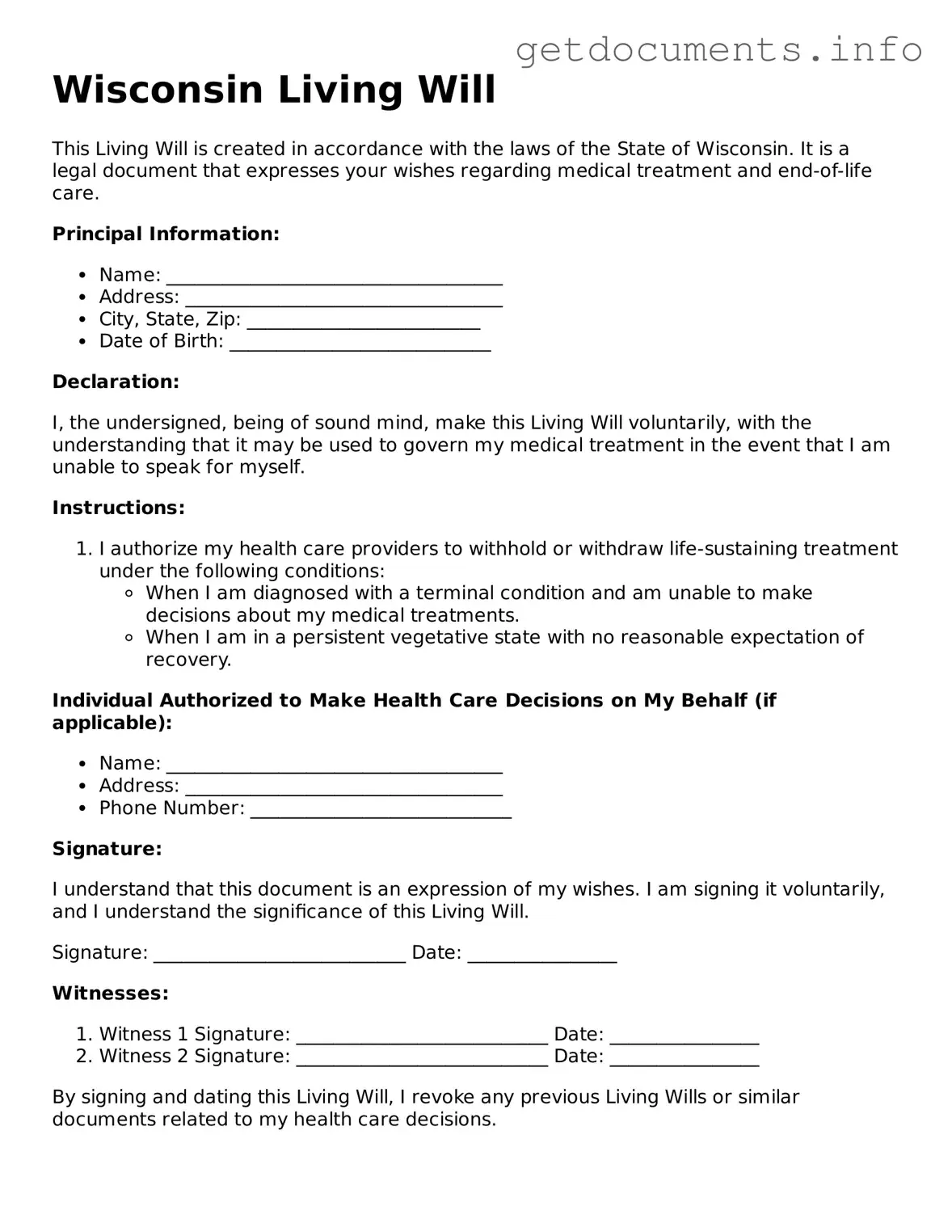Free Living Will Template for Wisconsin
A Wisconsin Living Will form is a legal document that allows individuals to outline their preferences for medical treatment in the event they become unable to communicate their wishes. This form is crucial for ensuring that one's healthcare choices are respected during critical moments. By taking the time to fill out this form, individuals can provide clarity and peace of mind for themselves and their loved ones.
Take the first step in safeguarding your healthcare decisions by filling out the Wisconsin Living Will form. Click the button below to get started.
Access Living Will Editor

Free Living Will Template for Wisconsin
Access Living Will Editor
Got places to be? Complete the form fast
Fill out Living Will online and avoid printing or scanning.
Access Living Will Editor
or
⇩ PDF File
